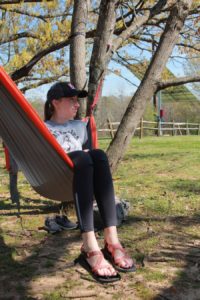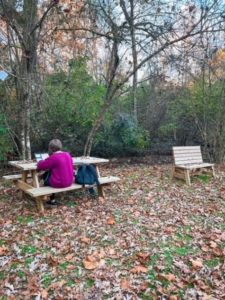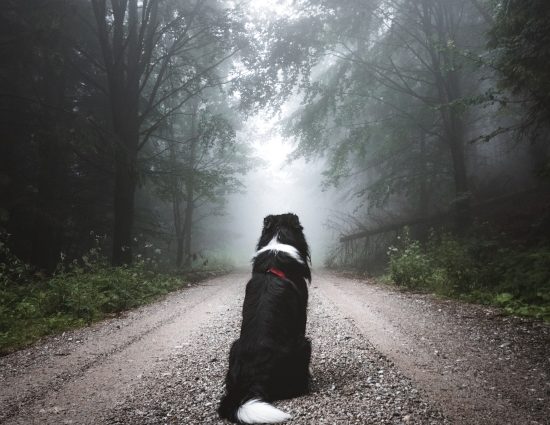A global pandemic. A political world divided. Forest fires ablaze. Mental health at a rapid decline. And I want to talk about happiness? It seems impossible and complicated and always out of reach lately.

To that, I ask: What do we have left?
Half of “happiness” or mood is dependent on situation and disposition. If you identify as an extrovert and you are under a mandate to not see people and to spend week upon week at home without external contact, chances are you aren’t going to be the happiest person. *Cue that impossible, complicated and out of reach line. I get it. But it isn’t impossible. One can pursue intentional positive actions, no matter what disposition, enneagram . . . or zodiac sign you hold.
Mountain Challenge, a small outdoor experience company in Maryville, Tennessee, decided over 10 years ago that mental health was just as important as the rocks you climbed and the trails you ran. Our non-profit arm, Fit.Green.Happy., has enabled us to explore wellbeing beyond time spent doing our favorite outdoor activities. We have done so by identifying Intentional Positive Actions . . .
Intentional Positive Actions (the other happiness-inducing IPA): Personal changed behaviors intended to increase mental health.
Listed below are our top five practices to increase overall wellbeing.
1.) Consistent Mindfulness/ Meditation practice
I know, I know, I know. You’ve heard it before. Take it seriously this time and start small, then work your way up. For one week, focus on your breath for 30 seconds to one minute. Week two? Two minutes. Practicing staying in the present will help in real time when things get rocky and uncertain.
2.) Pursue outdoor time, active or not

We all have an innate draw to the outdoors, best explained by the definition of Biophilia: a hypothesis that suggests humans tend to seek connections with nature and other forms of life. Outdoor time, whether on a run or laying in a hammock, has been proven to lower stress and anxiety levels, as well as improve focus and concentration.
3.) Focus on sleep
The next Netflix episode will be there in the morning, I promise. Instead of trying to hit that magic number of eight hours each night, wake up at the same time every day and let your natural circadian rhythm help fill in the unknown. Get no less than five minutes of bright light (Natural sunlight is best.) in your eyes first thing in the morning. And take small steps to perfect your wind-down, nighttime routine. This may look like low amounts of light and screen time, non-caffeinated hot tea, or some light stretching.
4.) In Real Life (IRL) is important, not URL
The happiest, longest-living nations in the world have perfected the in-person symbiotic way of living. They eat family dinners, gather for a mid-day coffee, and have conversations that surpass the “How’s the weather?” question. Our recent forced isolation, while having kept us healthy and safe, may have done a number on our mental health. Working to repair that may indeed require effort. This connection is important, and, when offered the option to Zoom, consider the latter.
5.) Dogs are important
Or cats. I don’t judge. The human-to-animal bond is unmatched. There are immediate decreases in cortisol (the stress response) and increases in oxytocin (the feel-good response) when we come in contact with our furry friends. This is true from infants to the elderly. And how cool is it that the animal feels this bond as well?
If you’re able to tackle multiple practices at once, say walking your dog while catching up with a friend, benefits are multiplied. Good on you. Go out and pursue happiness. While hard to find lately, I can assure you, it is still out there.
Jackie Eul gained distinctive and valuable experience as a staff member of Mountain Challenge, LLC, an outdoor adventure and teambuilding corporation on-campus at Maryville College. As a member of the staff, she led many student and business groups in outdoor experiences. She is currently the Fit. Green. Happy.® Projects Manager at Mountain Challenge and AmeriCorps Outdoor Project and School Health Coordinator for Knox County Schools in Tennessee.
Bio taken (in part) from Maryville College Outdoor Studies page


